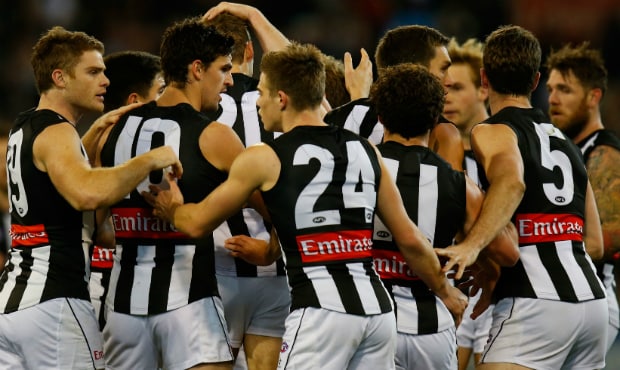Despite what Jason Akermanis claimed after he was pushed out of the Western Bulldogs, this could not be further from the truth.
The program that Leading Teams continues to run at a number of AFL clubs, including Collingwood and Fremantle, is titled the Performance Improvement Program.
In the words of Leading Teams founder Ray McLean, the PIP "has become a way of transferring much of the responsibility within an organisation to the staff, or in the case of sporting teams, to the players.
"This is done through a process of empowerment, whereby a manager/leader/coach recognises that the rest of the team has a great deal of knowledge about the running of the team."
In his book Team Work, McLean stressed that "empowerment is not a fluffy, new age management theory, but is in fact a hard-edged philosophy about aggressively improving team and individual performance."
When it comes to studying how the PIP has worked for AFL clubs, the Sydney Swans is among the best examples, for it was by using Leading Teams that the Swans were able to build their now-famous culture of success.
In the case of the Swans, numerous team-building exercises were undertaken before players or coaches were ask to front a peer review.
These included the players deciding what they wanted to stand for and how they believed they should act, which is where they came up with the idea of representing 'The Bloods'.
"We wanted to make sure we had a link to the past, something that had a bit of substance to it," Jude Bolton says in Martin Blake's new book The Rise of the Swans: A Decade of Success: 2003 to 2012.
The process continued with the Swans players identifying their teammates who best personified The Bloods. These players then formed the core of the club's leadership group.
When the first vote was taken at the Swans, star player Adam Goodes missed out. Goodes found out why when he fronted his teammates for his peer review session. He was told that although he was a great player himself, he wasn't doing enough to help others at the club.
Below: Collingwood believes its young group is benefiting from the Leading Teams program

"So then he started mentoring players, building relationships, helping them to get better, and it was a no-brainer that he came into the leadership group," McLean says in The Rise of the Swans.
Today, peer reviews are part and parcel of being a Swans player.
"We're hard but we're fair," 2012 premiership co-captain Jarrad McVeigh says in Blake's book.
"We want that player to improve, and therefore we improve as a group. We stress all the time that it's not personal. We want him to improve as a person and a player. We make sure everyone's honest, there's no tiptoeing around it. We say what we have to say and move on."
A crucial aspect of the PIP is that if a player refuses to adhere to the standards that have been agreed upon by him and all his teammates, he is moved on by the club. This is what happened to Akermanis at the Bulldogs.
For a club like Collingwood, which only recently began working with Ray McLean, the building blocks of the Performance Improvement Program are still being put in place.
But as McLean said in Team Work, "we remain convinced that the principles of empowerment can be applied to any given team".
Adam McNicol co-authored the book Team Work with Ray McLean. It was published by Penguin in 2010


